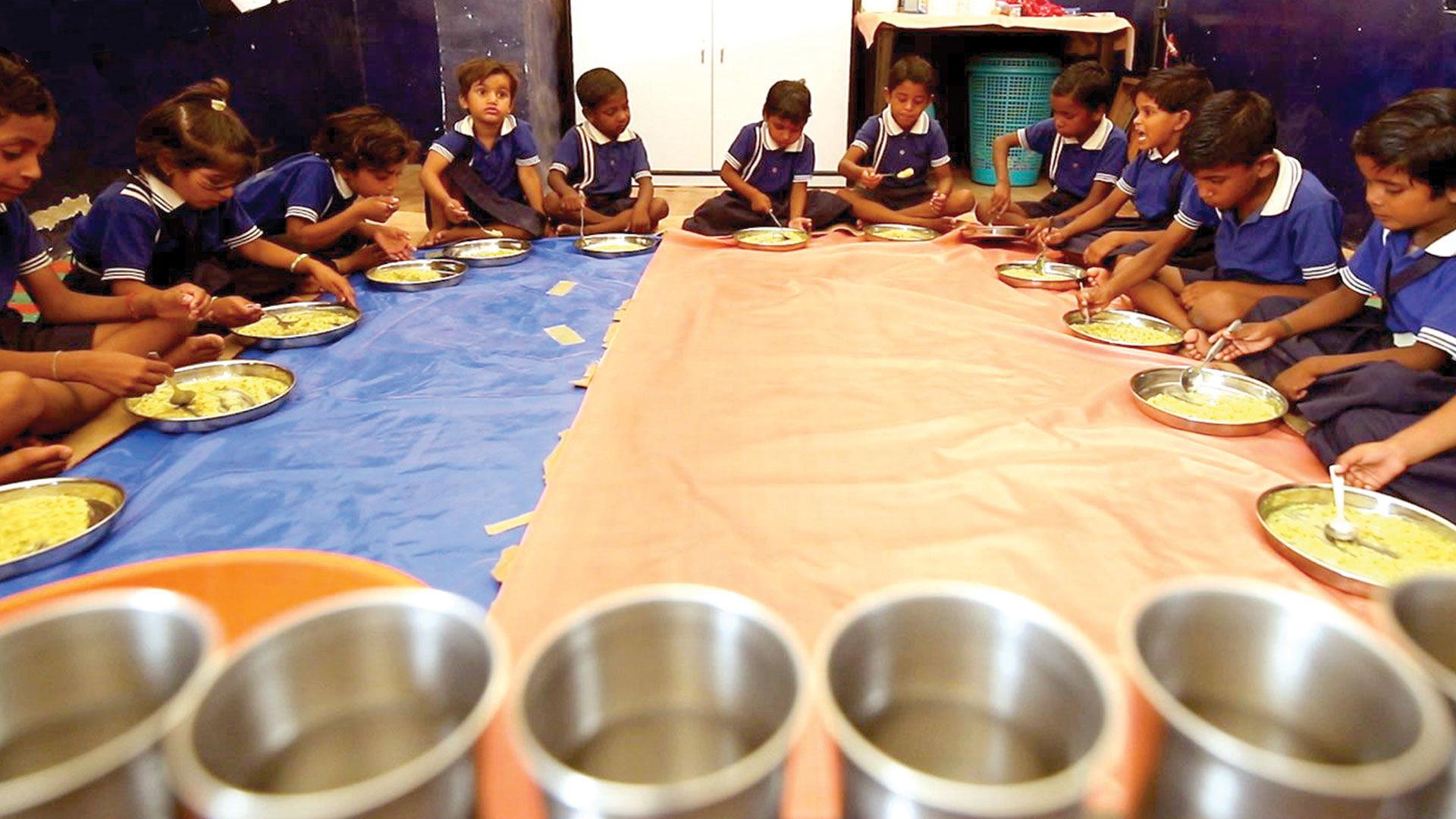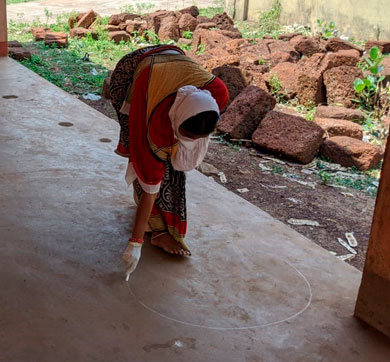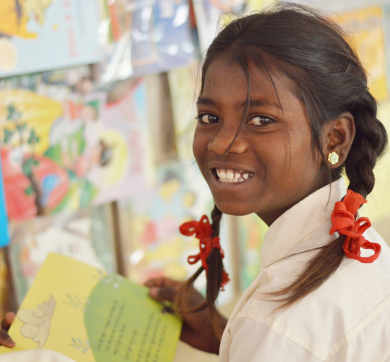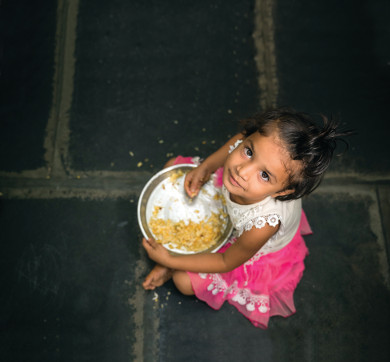April 2020 | 1500 words | 5-minute read
Pass toh zindabad, fail toh Ahmedabad (rough translation: if I pass it’s great, if I fail I’m off to Ahmedabad). The reference is to students from the margins taking their Std X exams in Rajasthan, and their prospects thereafter. Coming through the test means a chance to get ahead; flunk it and your best option is migrating from your homestead in search of a job, most likely menial. And therein lies the rub.
Migrating for low-skill, low-pay work, within the state or to regions outside, means a future of dislocation, uncertainty and, increasingly, peril for those forced to do so. Rajasthan has been hit particularly hard in this regard, with mounting agricultural distress and limited employment opportunities driving people to whichever place they can find employment, and to whatever job they can hold down.
Between 80% to over 90% of India’s 500 million-plus workforce — there is no consensus on the figure — labours in the informal or unorganised sector, the mainstay of the country’s economy. Migrant workers could constitute up to 30% of the whole, and there is no certainty on the number here either. What’s definitive is that people in both categories lead precarious lives, a hand-to-mouth existence the norm.
Rajasthan ranks among the states that account for the largest outflow of migrant labour in India. Mainly men and mainly young, their most common destinations are Gujarat, Maharashtra and, during the farming season, Punjab and Haryana. Interstate aside, migrating for informal work inside Rajasthan is widespread. Add the two and the figure could be as high as 50% of able-bodied men among the rural populace.
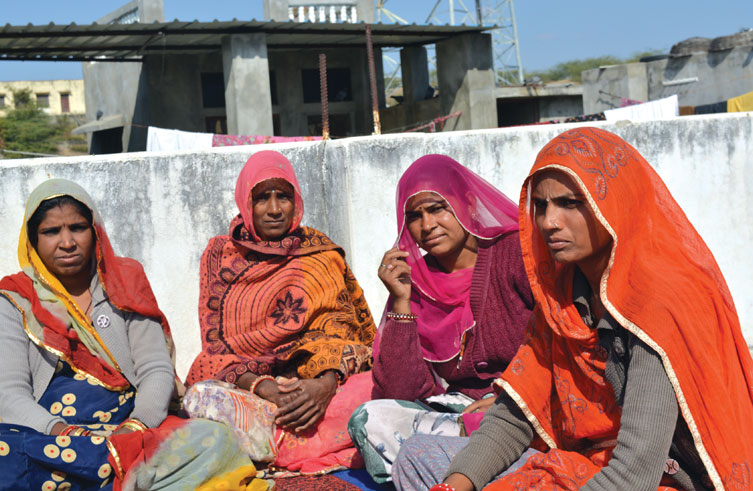
Labour migration of this kind is a recipe for sorrow and suffering, individual and social. Given the nature of work — informal, frequently outside the regulatory framework and lacking any sort of safety net — it is also a source of high risk. There’s the ever-present threat of losing the job itself and, worse, of disability and even death caused by worksite conditions.
Mohan Singh survives, and barely so, with first-hand experience of the extremes such work can result in. A 51-year-old from Bagta Ka Badiya village in Ajmer district, he contracted silicosis — a deadly form of lung disease caused by exposure to silica dust — after toiling for two decades in the sandstone mining industry in Bijolia in Bhilwara district.
“I can’t do much physical work now; I potter around in my field but I soon start panting,” says Mr Singh, who looks a lot older than his age. “We never wore masks and there were no preventive measures at the site. I did not know I would end up with silicosis. Nobody told us about it.”
Mr Singh has received 100,000 from the state government through a relief scheme for silicosis patients. He is entitled to a further 200,000 and a monthly pension, neither of which have materialised as yet. Even if this does, it would be scant comfort for Mr Singh, now staring mortality in the face while living with the fact that he has a family of five to support.
The miseries of Rajasthan’s migrant workers, as a whole, may not be as grim as those confronting Mr Singh but their everyday battle for sustenance is just as real. Bringing succour to these seemingly invisible people has been the objective of the migration programme of the Tata Trusts.
Instituted in 2006 and currently operational in Rajasthan, Odisha and Uttar Pradesh, the programme is designed to help deliver security and dignity to migrant labourers, essentially those making the unsteady journey from rural regions to India’s urban centres in search of livelihoods. The logic for it is solid.
Force for good
It is estimated that close to 50% of the country’s citizens will be residing in cities by 2040. That is not necessarily bad news. Urbanisation is a force for good, it has often been argued. Rapid and irreversible, urbanisation is fuelled by migration, the hidden hand in global economics and national development.
The problem here is the quality of life rural-to-urban migrants, particularly those who labour in the informal sector, are able to wrest for themselves and their families. Exposed to occupational, residential and social vulnerabilities, such migrants have minimal access to welfare schemes, their living conditions are frequently filthy and, to top it all, they face discrimination on a variety of fronts, not least from the so-called natives.
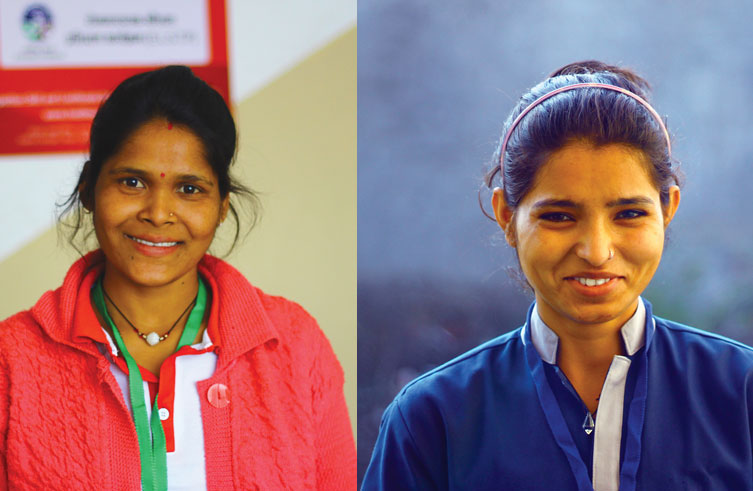
Addressing these and other issues is central to the goals of the migration programme. In Rajasthan, this has resulted in financial support for house construction and repair, food security and health needs; the building of migration resource centres — called Apna Seva Kendras (ASKs) — to help migrants access government schemes, legal services and linkages to training in skill development; and, under the Udaan initiative, daycare centres that cater to the children of brick kiln workers and pregnant women (pictured in the banner).
The financial inclusion component in the programme, undertaken in partnership with the Rajasthan Shram Sarathi Association, Avanti Finance and others, includes the facilitation of credit, savings, insurance and pension services, as also education and counselling in financial matters. The package also takes in assistance for the treatment of tuberculosis patients and lately, those burdened with silicosis.
Providing a range of services to migrant workers and their families close to their home villages is the task assigned to ASKs. Migrants are mobilised to register with the centres — there are six of them in five districts of the state — they are made aware of and connected to government entitlements, and provided with legal help to settle disputes with employers. Additionally, there is skills training aimed at securing jobs for people near where they hail from.
Nearly 54,000 migrants are enrolled with the ASKs, which have been modelled to be sustainable community institutions. There is a 100 contribution per year by each migrant family and this may seem stiff for people stretched on resources, but becoming self-sufficient is vital for the long-term survival of the centres. The money collected has gone a long way in ensuring that.
Link to entitlements
Crucially, ASKs have delivered where it counts, especially in enabling migrants to access government schemes (about 210 million in money transfers have been facilitated thus far). Manju Kanwar, a 28-year-old mother of five from Surajpura village in Ajmer, is one such beneficiary. “I ran from pillar to post trying to get the yearly scholarships that my son and daughter are eligible for, to no avail,” she says. “This came through after I became an ASK member.”
“The ASKs are a big help for people around here,” says Dharmendra Singh, who heads the village council in Lotiyana in Ajmer district. “Going directly to the labour department and government officials means problems for them, and there are all these middlemen and brokers. It’s different at the centres. They do a great job in reaching out to migrants, explaining government schemes and getting people what they are entitled to.”
The skilling subset in the migration programme takes a different tack. The intent here is to find suitable — and nearby — jobs for young men and women through linkages with quality training institutes. Skill mitras (friends) fan out into villages to identify and convince these disadvantaged youngsters to get trained, and then put them on the road to long-term employment.
Launched in 2016 in Ajmer and Sirohi districts, the skilling project for informal sector workers has gathered momentum in the years since. The pathway is clear: outreach, counselling, training and job placements. Dhulee Grasiya, a 23-year-old tribal from Ajari village in Sirohi district, did not need prompting to grab the opportunity.
“I chose this nursing course [at the Balaji Soni Hospital in Jaipur] because that’s what interested me the most,” says Ms Grasiya. “I was more than willing to take the chance. This is not an easy job but I’m sure I will be a good nurse. I want to earn money and send it back to my parents, who have supported me all their lives. Also, my kids will get better education.”
Suman Kanwar, a 20-year-old from Viroli village in Sirohi, has completed the same course and now works as a nursing assistant at the Mahatma Gandhi Hospital in Jaipur. “Moving out of my home for the training was very scary at first but I grew to like it,” she says.
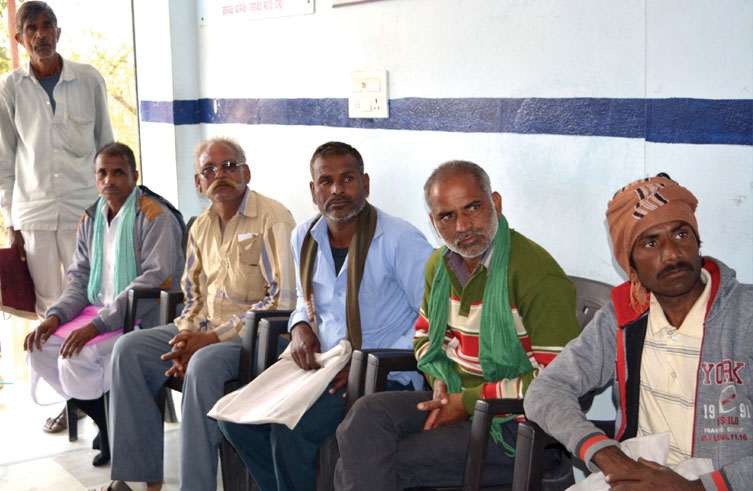
Beyond the minutiae of the migration and skilling programme, the impact it has made is where it truly matters. “What has gone really well is the recognition by the central and state governments that migrant workers face various difficulties, and this despite the enormous contribution they make,” says Ashish Gautam, area manager for the programme in Rajasthan. “Secondly, the work that we and our partners are doing has triggered interest from a lot of other donors in this whole space of internal migration.”
Mr Gautam is quick to emphasise the criticality of getting governmental support for the effort to fetch greater dividends. “We are trying to influence the government so that we can hit on a more efficient and systemic engagement, one that can be replicated in other geographies. Importantly, government bodies have to scale up these interventions. But there are mindset issues when it comes to labour welfare.”
Brick by brick
Bricks are the building blocks of the construction industry and brickkilns are the places where they come from. That much may be known, but there is precious little knowledge of the people who keep the engine of this business running, and less so of the conditions in which they work and live.
Brickkilns tend to employ seasonal migrants and that means people who travel far from their homes to work for meagre salaries, and in an environment where their welfare and the wellbeing of their children are hardly ever a consideration.
Helping change that sorry reality is the goal of Udaan (or flight), a standout component of the migration programme in Rajasthan. There are an estimated 4,000 brickkilns in the state, with an average strength of 150 workers in each of them. The families of these workers, particularly their children, is the concern uppermost in the Udaan agenda.
Udaan focuses on early childhood care and education, nutrition and maternal health. Launched in August 2017 as a pilot project at two centres in Sri Ganganagar, a district that hosts some 400 brickkilns, Udaan offers an array of amenities: pre-schooling for children in the three-to-six age group, nutritious meals twice a day for the kids , health and hygiene monitoring, linkages to the formal education system for children in the 7-14 age bracket, maternity and new-born care, and the facilitation of institutional delivery.
The project began with an orientation package for brickkiln owners and soon picked by pace. Supported by the district administration and the brickkiln owners’ association, Udaan has demonstrated all that can be done — and without breaking the bank — for children and mothers in migrant families. The district administration acknowledges this is essential and worthy of replication at the national level.
This story was previously published on Tata Trusts Horizons




